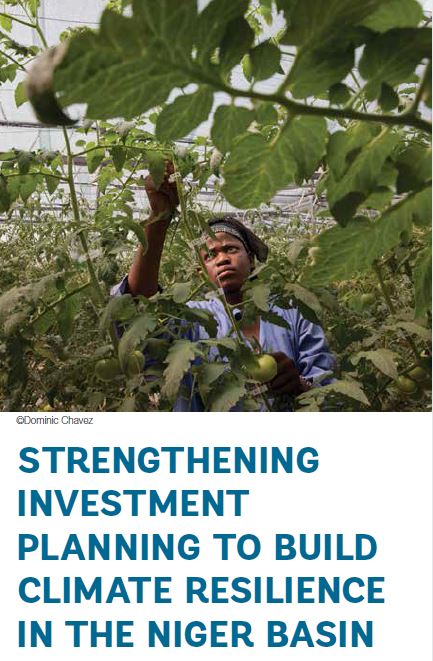STRENGTHENING INVESTMENT PLANNING TO BUILD CLIMATE RESILIENCE IN THE NIGER BASIN
The people of the Niger Basin depend on the river: about 70 percent of the 130 million people in the basin live in rural areas where food security and social well-being are largely dependent on rainfall and river flow. Climate change increases uncertainty of the frequency, location, quantity, and quality of water availability, and people are unable to prepare adequate responses due to weak monitoring and information systems, absence of infrastructure, and limited institutional capacity. This threatens food and energy security, economic development, ecosystem health, and overall regional stability. Current security threats in the region add to its fragility, which, coupled with resource scarcity, drive migration and exacerbate the challenges of daily life. Mobilizing resources for investments to help overcome resource-related conflict and reduce resource-driven migration can potentially secure lives and livelihoods and contribute to keeping fragility and growing insecurity at bay.
